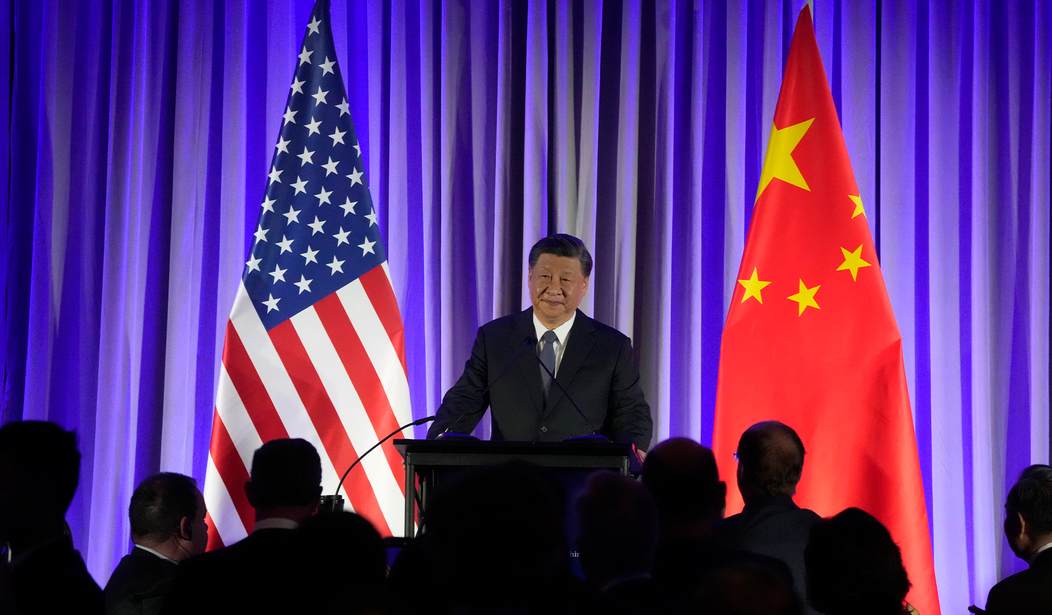Xi Jinping must have been in pretty good spirits after the royal reception he received from Joe Biden and the Democrats during his recent visit to San Francisco. Things went so well that his entourage didn’t even get carjacked while they were there, which is rather remarkable considering what San Fran is like most days lately. So what’s next on the agenda for the Chinese Communist Party? It would appear that more warm diplomacy with Western allies is in order. The leading foreign diplomats from China, Japan, and South Korea met this morning to negotiate a trilateral summit between the leaders of the three nations. Rather than talking about war and other unpleasant matters, they will aim to improve cooperation and bolster trade. So does this mean that everyone is suddenly ready to simply let bygones be bygones and pretend that the last decade or so never happened? (Associated Press)
The top diplomats from South Korea, Japan and China met Sunday to discuss when to resume their leaders’ trilateral summit after a four-year hiatus and how to strengthen cooperation among the three Northeast Asian neighbors.
Closely linked economically and culturally with one another, the three countries together account for about 25% of the global gross domestic product. But efforts to boost trilateral cooperation have often hit a snag because of a mix of issues including historical disputes stemming from Japan’s wartime aggression and the strategic competition between China and the United States.
“Korea, Japan and China have the potential for massive cooperation. Our three countries are neighbors that can’t be separated from one another,” South Korean Foreign Minister Park Jin said at the start of the meeting in Busan, South Korea.
One of the topics slated for discussion is the constant, growing threat posed by North Korea and Kim Jong-un’s nuclear ambitions. A nuclear-armed North Korea is a huge concern and a security threat to both South Korea and Japan. But what can China possibly say to the leaders of those two countries on that score? China is the North’s most reliable partner and they regularly violate the NATO sanctions against Kim’s regime, sending food and other types of supplies to them across the northern border and by sea. It’s long been believed that if hostilities ever did break out on the peninsula again, Bejing would side with the North over the South.
Japan and China share a long and acrimonious history, with diplomatic spats and court battles continuing to this day. They’ve been at war frequently over the centuries, so cozying up as allies all of a sudden isn’t exactly an easy feat. Both the Japanese and South Korean representatives asked China to take steps to push North Korea toward denuclearization. Encouraging words were exchanged, but that’s traditionally been the problem with China. They talk a good game but then go back home and continue doing what they’ve always done. China makes many promises, but always falls short on delivery.
I will grant you that it’s almost always better to have countries talking about diplomacy rather than war. But how are America’s allies supposed to forget all of the very recent threats and provocations from China? They’ve been harassing naval forces from the Philippines and even confronting American naval vessels in the South China Sea and the Strait of Taiwan. God only knows how many spy balloons they’ve been sending around the world. And their growing partnership with Russia has the entire world on edge.
The real reason China is doing all of this rushed diplomacy is because they are currently scrambling. The country’s economy is teetering and it may be hobbled for years.
China’s all-important property market, which has accounted for as much as 30% of the economy, fell into crisis more than two years ago after a government-led clampdown on developers’ borrowing.
Investment in real estate fell last year for the first time in a decade, and with no bailout from Beijing in sight, the property downturn is likely to drag on, posing a major threat to China’s growth prospects over the next three to five years.
“For China, the only way out of this [property] crisis is a slow but painful adjustment,” said Alicia Garcia-Herrero, chief economist for Asia Pacific at Natixis. “The adjustment has only started and will take years to conclude.”
Avoiding a hot war with China will always be the most desirable outcome. But “forgive and forget” isn’t a good foreign policy choice for America or our allies because China has given us so very much to forget. Perhaps progress is possible, but a strong leader would push China to put more on the table up front. They should back down on their rapid military expansions and cease their aggressive military confrontations at sea. They need to stop their surveillance inside the United States and start acting more like a neutral party if they want to be treated that way.








Join the conversation as a VIP Member